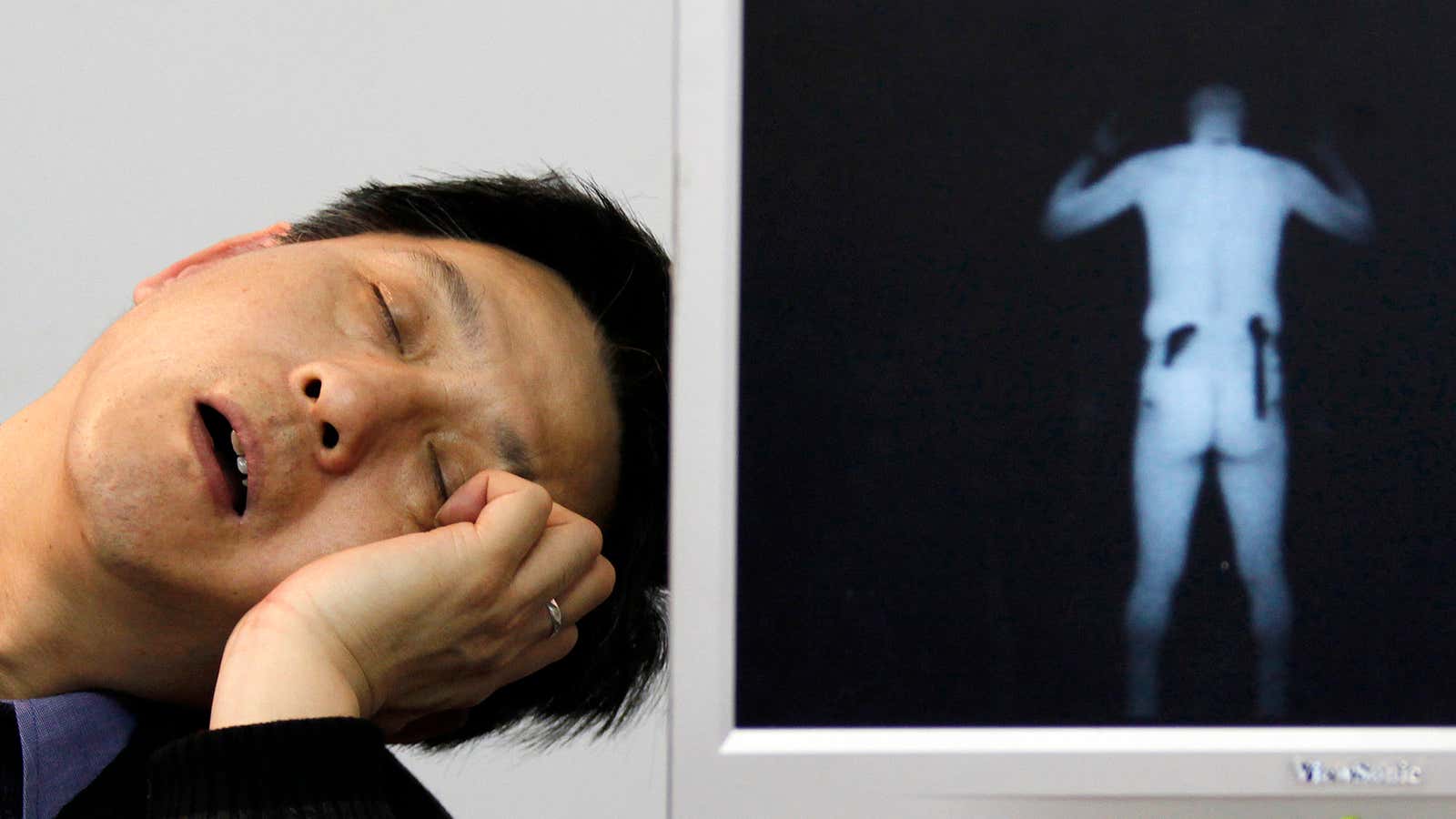Some people can sleep with the lights on. But it’s probably not a good idea. A new study shows that excess exposure to artificial light can accelerate aging and cause other health problems for lab mice.
More than four-fifths of the world’s population is exposed to light pollution, and previous studies have hinted at the potential negative effects of artificial lighting, ranging from the obvious (poor sleep) to the fairly terrifying (an increased risk of breast cancer). To date, however, all of that has been correlation—research has yet to show a direct link between artificial light exposure and health issues.
In an attempt to figure it out, researchers at Leiden University recently exposed more than 100 mice to artificial light for 24 hours a day for 24 weeks. A similar-sized control group was exposed to normal day/night light. Though the lab animals could sleep where they wanted, they couldn’t avoid exposure to light. (Closing their eyes would reduce the exposure to about one-seventh, but wouldn’t eliminate it, according to the researchers.) The mice also had electrodes implanted in their brains, to measure any changes to the neuronal cells that control their body clocks.
At the end of the experiment, the researchers found that the artificial light-exposed mice’s body clocks had shifted from the normal 24-hour cycle to a 25.5 hour cycle. This would mean, instead of feeling sleepy around the same time every day, their body clock would make them sleepy 1.5 hours later than the previous day. This desynchronization is a phenomenon scientists have observed as a typical part of aging, in both mice and humans.
In addition, after 24 weeks of non-stop artificial light, the mice suffered other physical signs of aging, like reduced bone density and weakened muscles. The scientists aren’t sure if these health problems were caused by the desynchronization of the mice’s body clocks, or if it was simply 24 weeks straight of poor sleep under the bright lights. The experimental conditions are more extreme than what most humans would ever encounter. After all, 24 weeks for a mouse is nearly a sixth of its life. And, of course, what happens to mice under certain conditions isn’t always what happens to humans.
Still, it seems like the literature so far suggests that its worth making the extra effort—like getting black-out curtains—to keep as much artificial light out of your bedroom as possible.
